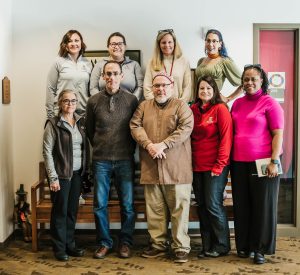Policies
Truitt Center for Religious and Spiritual Life Policies
Elon University respects the religious, spiritual, and secular beliefs, commitments, and values of all members of the campus community, and encourages their free expression. The University has entrusted the University Chaplain and Dean of Multifaith Engagement, with the oversight of religious and spiritual life on campus, in collaboration with a multifaith team of chaplains, professional staff, and approved community affiliates (non-employees).
Our commitment is to ensure that students have reasonable access to religious and spiritual services, resources, and practices of their own choosing, and to provide opportunities for all students, religious and nonreligious, to explore questions of meaning, value, and purpose.

We believe that religious and spiritual life involves respect for all beliefs, traditions, and worldviews, as well as considerate interaction with and learning from one another.
We recognize that there is a dynamic tension between adherence to one’s own beliefs and tradition and exploration of the beliefs of others; between the particularity of one’s own faith and values and the commonality shared with the faith and values of others.
We intentionally choose to maintain this dynamic by honoring the specific aspects of each tradition, including secular and humanist traditions, while also appreciating the fundamental values we hold in common.
The college years are a time of intense learning when students are on a trajectory of growth and change. Identities are shaped, beliefs examined, and perspectives are altered. This process of reflection, examination, and alteration extends to religious and spiritual identity. The chaplains, staff, and community affiliates of the Truitt Center are available to support and encourage students in this journey of seeking, questioning, and self-discovery, within the context of our diverse multifaith community.
Our policies, including the Religious Observance Notification Policy, the Faith Sharing and Proselytizing Policy, and more, provide the framework for Religious and Spiritual Life on campus, with the goal that religious activity be student-centered, support the holistic well-being of all students, and be conducted
ethically and with transparency of purpose.